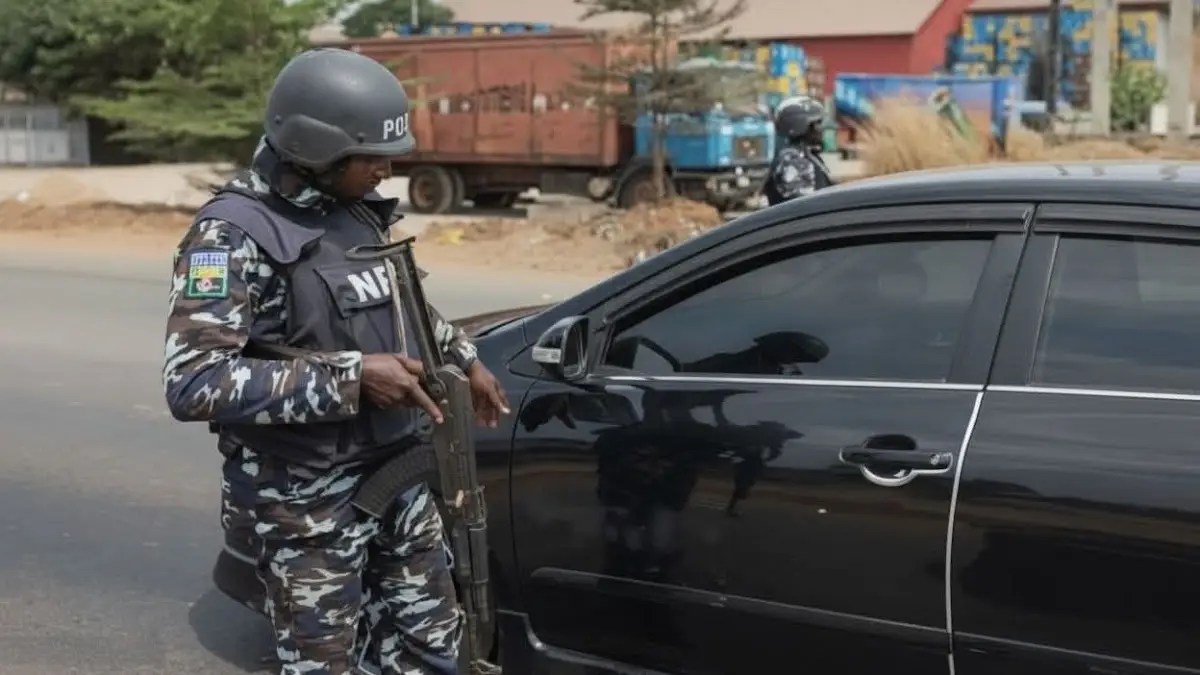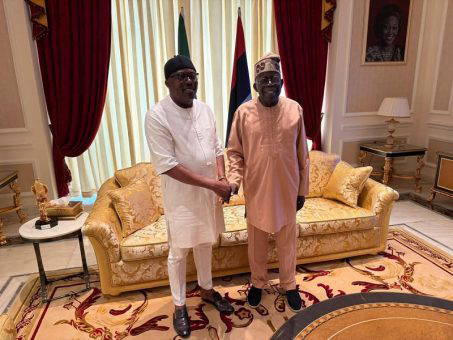News
Unrest Continues in South Africa over Zuma’s Imprisonment

Buildings were set on fire and properties looted in South Africa on Monday as unrest sparked by the jailing of ex-president Jacob Zuma last week continued for a fourth day.
The country’s top court, which ordered Zuma jailed for refusing to appear before a corruption probe, is holding a review of its decision with a ruling expected later on whether the sentence will be upheld.
The 79-year-old former anti-apartheid fighter remains popular, especially in his native KwaZulu-Natal province where he is seen to embody traditional values.
KwaZulu-Natal was hit hard by protests over the weekend, and on Monday flames could be seen coming from the roof of a shopping centre in provincial capital Pietermaritzburg as hordes of people rushed in to loot.
In Eshowe, a town near Zuma’s Nkandla home, police opened fire to disperse crowds after a supermarket was ransacked early on Monday.
Police said some sections of a major road in Johannesburg had been closed because of the protests.
Dozens of cars were torched over the weekend in Johannesburg and KwaZulu-Natal, where protests erupted a day after Zuma was imprisoned on Thursday.
Police said dozens have been arrested.
Although some of the protests appear to have been triggered by Zuma’s 15-month detention for contempt of court, they are tied in with economic hardship and tightened restrictions brought on by a third wave of the Covid-19 pandemic.
President Cyril Ramaphosa urged “peaceful protest” during a speech on Sunday.
“While there are those who may be hurt and angry at this moment, there can never be any justification for such violent, destructive and disruptive actions,” he said.
(AFP)
News
Finally, Police Suspend Tinted Glass Permit Enforcement

The Nigeria Police Force has suspended the nationwide enforcement of its tinted glass permit policy following an interim court order that restrained the move.
The Force announced on December 15, 2025, that it would begin enforcing the policy starting January 2, 2026, citing its responsibility to ensure public safety and internal security.
However, in a statement issued on Thursday and signed by Force Public Relations Officer Benjamin Hundeyin, the police revealed that they were served with an interim order on December 17, 2025.
The enforcement will remain suspended pending the hearing and determination of the substantive suit or the vacation of the interim order.
“The Nigeria Police Force was served with an interim order of court in Suit No. HOR/FHR/M/31/2025, issued on 17th December 2025, restraining the Force from proceeding with the enforcement of the Tinted Glass Permit policy pending the hearing and determination of the substantive suit or the vacation of the order,” the statement said.
The police also confirmed that they had entered an appearance in the case, raised preliminary objections, and formally requested the vacation of the interim order.
The case has been adjourned to January 20, 2026, for further hearing.
“In line with constitutional obligations and respect for judicial authority, the Nigeria Police Force has entered appearance in the matter, raised preliminary objections, and formally applied for the vacation of the interim order. The court has adjourned the case to 20th January 2026 for further proceedings,” the statement added.
The statement noted that the suspension of enforcement is being carried out in strict adherence to the ongoing court order.
“Accordingly, and strictly in compliance with the subsisting court order, the Nigeria Police Force has placed the enforcement of the Tinted Glass Permit policy on hold nationwide, pending the decision of the court.”
Inspector-General of Police Kayode Egbetokun reaffirmed the Force’s commitment to upholding the rule of law while fulfilling its duty to protect lives and property.
“The Inspector-General of Police, IGP Kayode Adeolu Egbetokun, PhD, NPM, affirms that the Nigeria Police Force remains resolute in upholding the rule of law while discharging its primary mandate of protecting lives and property. The Force will continue to deploy lawful, intelligence-driven strategies to address security challenges and safeguard public safety across the country,” the statement added.
The Force also assured members of the public that it would communicate further developments and issue clear guidance as appropriate, following the court’s determination of the matter, in the overriding interest of public order and national security.
News
Court Remands Ex-AGF Malami, Son, Wife in Kuje Prison

The Federal High Court In Abuja on Tuesday ordered the remand of the Former Attorney-General of the Federation and Minister of Justice, Abubakar Malami (SAN), at the Kuje Correctional Centre pending the hearing and determination of their bail application.
The trial judge, Justice Emeka Nwite, also ordered the remand of his co-dedendants, his son, Abubakar Malami, and one of his wives Bashir Asabe.
Justice Nwite made the order after taking arguments from the defence team led by Joseph Daudu (SAN) and the prosecution counsel Ekele Iheneacho (SAN).
Malami and his co-defendants are facing a 16-count money laundering charge preferred against them by the Economic and Financial Crimes Commission.
The EFCC alleges that the defendants conspired at various times to conceal, retain and disguise the proceeds of unlawful activities running into several billions of naira.
According to the charge, the alleged offences span several years and include the use of companies and bank accounts to launder funds, the retention of cash as collateral for loans, and the acquisition of high-value properties in Abuja, Kano and other locations.
The commission further alleges that some of the offences were committed while Malami was serving as Attorney-General of the Federation, in breach of the Money Laundering (Prohibition) Act 2011, as amended, and the Money Laundering (Prevention and Prohibition) Act 2022.
News
2027: Backing Tinubu Not Guarantee for Second Term Ticket, Wike Mocks Fubara

Minister of the Federal Capital Territory (FCT), Nyesom Wike, has sent a veiled message to Rivers State governor, Siminalayi Fubara, saying support for President Bola Tinubu alone will not guarantee any election ticket.
Wike made the statement on Sunday during a public outing in Emohua Local Government Area of Rivers State.
His remarks were widely seen as directed at Governor Fubara, amid lingering political crisis in the State.
The former Governor of Rivers State said political loyalty must be tested during difficult times, not after power has been secured.
He mocked those he described as late supporters of President Tinubu, insisting that sudden alignment would not earn political rewards.
He said: “So the issue is not whether you are supporting Tinubu. That one, we have taken too long, long… Yes, oh. So Tinubu’s issue is not an issue again. Yes. Do you understand me? Yes. Tinubu’s issue is that nobody should be coming here to tell a day. We are for Tinubu; I am against you. Who is for Tinubu University? (laughs) That cannot give you any ticket oh! (laughs again) Direct, direct. It will not. Direction. Direction.”
Wike stressed that his political camp stood with Tinubu when the decision was unpopular. He said that support given under pressure carries more weight than alignment after victory.
He also recalled how the Rivers State House of Assembly openly backed Tinubu early, long before the election outcome was certain.
According to him, some of those now making public declarations were absent during the critical period.
“The same people now who came to declare, put them to God… But they should declare they are saying it for a candidate. Yes. Don’t you see characters? (laughs) So I send the sword far ahead of them.”
Wike further spoke on governance and continuity. He defended projects and agreements initiated during his tenure as governor. He said it is often difficult for successors to acknowledge past efforts, even though government is a continuous process.
His comments come weeks after Governor Fubara formally aligned with the All Progressives Congress (APC), the party of President Tinubu.
The move followed months of political crisis in Rivers State, which led to federal intervention and a declaration of emergency rule.
Political watchers believe Wike’s remarks constitute a direct response to Fubara’s recent positioning as a key Tinubu ally in Rivers politics. Critics argue that Fubara’s support surfaced only after the political storm had settled.
Wike, who remains a dominant force in Rivers State politics despite serving in Abuja, appears to have drawn a clear line ahead of the 2027 elections.
He suggested that political tickets would be decided by proven loyalty, not convenience.
Videos from the event in Rumuche, Emohua, spread rapidly on social media. Many users described the speech as a coded warning to the governor.
As of press time, neither the Rivers State Government nor Wike’s media team had issued an official clarification.
The comments, however, suggest that the political rift between both camps is still active, despite earlier peace moves brokered at the national level.






